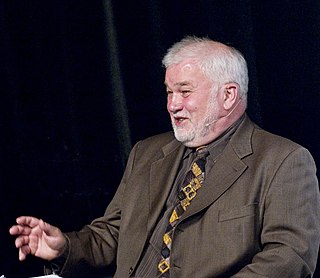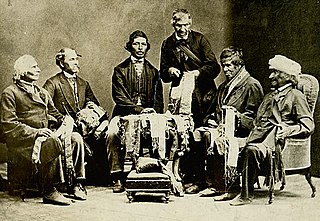William H. Sewell Jr. (born 1940 in Stillwater, Oklahoma) is[ as of? ] an American academic. [1] He is the Frank P. Hixon Distinguished Service Professor Emeritus of History and Political Science at the University of Chicago.
William H. Sewell Jr. (born 1940 in Stillwater, Oklahoma) is[ as of? ] an American academic. [1] He is the Frank P. Hixon Distinguished Service Professor Emeritus of History and Political Science at the University of Chicago.
Sewell is the son of William H. Sewell, a sociologist who served as the chancellor of the University of Wisconsin-Madison from 1967 to 1968.
Sewell received his B.A. in history from the University of Wisconsin–Madison in 1962 and his Ph.D. in history from the University of California, Berkeley in 1971. His dissertation was titled "The Structure of the Working Class of Marseille in the Middle of the Nineteenth Century," and his advisor was the historian Hans Rosenberg. His first teaching position was in the history department at the University of Chicago from 1969 to 1975. He was a long-term member of the School of Social Science at the Institute for Advanced Study in Princeton, New Jersey, from 1975 to 1980. He taught in the history department at the University of Arizona from 1980 to 1985 and in the history and sociology departments at the University of Michigan from 1985 to 1990, when he returned to the University of Chicago. He has made contributions in the areas of modern French labor, social, cultural and political history, the history of capitalism, and social and cultural theory.
"On the Emergence of Capitalism: Marx, Brenner, and the Troublesome Case of the Dutch," Critical Historical Studies, 11,1 (2024), 1-46.

Capitalism is an economic system based on the private ownership of the means of production and their operation for profit. The defining characteristics of capitalism include private property, capital accumulation, competitive markets, price systems, recognition of property rights, self-interest, economic freedom, work ethic, consumer sovereignty, decentralized decision-making, profit motive, a financial infrastructure of money and investment that makes possible credit and debt, entrepreneurship, commodification, voluntary exchange, wage labor, production of commodities and services, and a strong emphasis on innovation and economic growth. In a market economy, decision-making and investments are determined by owners of wealth, property, or ability to maneuver capital or production ability in capital and financial markets—whereas prices and the distribution of goods and services are mainly determined by competition in goods and services markets.

Anti-capitalism is a political ideology and movement encompassing a variety of attitudes and ideas that oppose capitalism. In this sense, anti-capitalists are those who wish to replace capitalism with another type of economic system, such as socialism or communism.
Neoliberalism is both a political philosophy and a term used to signify the late-20th-century political reappearance of 19th-century ideas associated with free-market capitalism. The term has multiple, competing definitions, and is often used pejoratively. In scholarly use, the term is often left undefined or used to describe a multitude of phenomena; however, it is primarily employed to delineate the societal transformation resulting from market-based reforms.

Louis Jean Joseph Charles Blanc was a French socialist politician, journalist and historian. He called for the creation of cooperatives in order to guarantee employment for the urban poor. Although Blanc's ideas of the workers' cooperatives were never realized, his political and social ideas greatly contributed to the development of socialism in France. He wanted the government to encourage cooperatives and replace capitalist enterprises. These cooperatives were to be associations of people who produced together and divided the profit accordingly.

In sociology, an industrial society is a society driven by the use of technology and machinery to enable mass production, supporting a large population with a high capacity for division of labour. Such a structure developed in the Western world in the period of time following the Industrial Revolution, and replaced the agrarian societies of the pre-modern, pre-industrial age. Industrial societies are generally mass societies, and may be succeeded by an information society. They are often contrasted with traditional societies.
Cultural history records and interprets past events involving human beings through the social, cultural, and political milieu of or relating to the arts and manners that a group favors. Jacob Burckhardt (1818–1897) helped found cultural history as a discipline. Cultural history studies and interprets the record of human societies by denoting the various distinctive ways of living built up by a group of people under consideration. Cultural history involves the aggregate of past cultural activity, such as ceremony, class in practices, and the interaction with locales. It combines the approaches of anthropology and history to examine popular cultural traditions and cultural interpretations of historical experience.

Theda Skocpol is an American sociologist and political scientist, who is currently the Victor S. Thomas Professor of Government and Sociology at Harvard University. She is best known as an advocate of the historical-institutional and comparative approaches, as well as her "state autonomy theory". She has written widely for both popular and academic audiences. She has been President of the American Political Science Association and the Social Science History Association.

The Cult of Reason was France's first established state-sponsored atheistic religion, intended as a replacement for Roman Catholicism during the French Revolution. After holding sway for barely a year, in 1794 it was officially replaced by the rival deistic Cult of the Supreme Being, promoted by Robespierre. Both cults were officially banned in 1802 by Napoleon Bonaparte with his Law on Cults of 18 Germinal, Year X.
Moishe Postone was a Canadian historian, sociologist, political philosopher and social theorist. He was a professor of history at the University of Chicago, where he was part of the Committee on Jewish Studies.

Nancy Fraser is an American philosopher, critical theorist, feminist, and the Henry A. and Louise Loeb Professor of Political and Social Science and professor of philosophy at The New School in New York City. Widely known for her critique of identity politics and her philosophical work on the concept of justice, Fraser is also a staunch critic of contemporary liberal feminism and its abandonment of social justice issues. Fraser holds honorary doctoral degrees from four universities in three countries, and won the 2010 Alfred Schutz Prize in Social Philosophy from the American Philosophical Association. She was President of the American Philosophical Association Eastern Division for the 2017–2018 term.

Charles Tilly was an American sociologist, political scientist, and historian who wrote on the relationship between politics and society. He was a professor of history, sociology, and social science at the University of Michigan from 1969 to 1984 before becoming the Joseph L. Buttenwieser Professor of Social Science at Columbia University.
Sidney Wilfred Mintz was an American anthropologist best known for his studies of the Caribbean, creolization, and the anthropology of food. Mintz received his PhD at Columbia University in 1951 and conducted his primary fieldwork among sugar-cane workers in Puerto Rico. Later expanding his ethnographic research to Haiti and Jamaica, he produced historical and ethnographic studies of slavery and global capitalism, cultural hybridity, Caribbean peasants, and the political economy of food commodities. He taught for two decades at Yale University before helping to found the Anthropology Department at Johns Hopkins University, where he remained for the duration of his career. Mintz's history of sugar, Sweetness and Power, is considered one of the most influential publications in cultural anthropology and food studies.
Walter Benn Michaels is an American literary theorist and author whose areas of research include American literature, critical theory, identity politics, and visual arts.

Jürgen Kocka is a German historian.
The following events related to sociology occurred in the 1970s.

While Karl Marx and Friedrich Engels defined communism as a political movement, there were already similar ideas in the past which one could call communist experiments. Marx himself saw primitive communism as the original hunter-gatherer state of humankind. Marx theorized that only after humanity was capable of producing surplus did private property develop.
Tom Brass is an academic who has written widely on peasant studies. For many years he was at the University of Cambridge as an affiliated lecturer in their Faculty of Social and Political Sciences and at Queens' College, Cambridge as their Director of Studies of the Social and Political Sciences. For many years he was an, and then the, editor of the Journal of Peasant Studies. Murray reports Brass as being "dismissive of the cultural turn in peasant studies" and the rise of post-modern perspectives and his notion that this has been a conservative process and that it has lent support to neoliberalism.

This bibliography of sociology is a list of works, organized by subdiscipline, on the subject of sociology. Some of the works are selected from general anthologies of sociology, while other works are selected because they are notable enough to be mentioned in a general history of sociology or one of its subdisciplines.
Francesco Boldizzoni is an Italian academic and historian. He is currently a professor of political science at the Norwegian University of Science and Technology, having previously taught at the University of Turin and the University of Helsinki, and held research positions at Clare Hall, Cambridge and the Max Planck Institute for the Study of Societies in Cologne.
Critical juncture theory focuses on critical junctures, i.e., large, rapid, discontinuous changes, and the long-term causal effect or historical legacy of these changes. Critical junctures are turning points that alter the course of evolution of some entity. Critical juncture theory seeks to explain both (1) the historical origin and maintenance of social order, and (2) the occurrence of social change through sudden, big leaps.